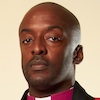01 Aug 2014 A Firewall is Needed Against Militant Islam, by Archbishop Council Nedd II
 What’s a firewall? It’s an impenetrable barrier meant to stop an undesirable action.
What’s a firewall? It’s an impenetrable barrier meant to stop an undesirable action.
In politics, consider the example of the 1988 United States presidential race. After several embarrassing defeats in early primaries, then-Vice President George H.W. Bush’s campaign manager announced to staff and supporters that South Carolina and its influential primary would be the firewall for the Bush campaign.
With workers and volunteers focused and dug in, working harder than ever so their candidate would prevail, the firewall succeeded and Bush handily defeated his challengers. The rest, as they say, is history. Bush went on to win his party’s nomination and eventually became the 41st president of the United States.
Similarly, for human rights reasons, it is necessary to build a firewall to stop the international expansion of radical Islam. Wholly different from peaceful followers of the Muslim faith, the adherents of radical Islam threaten the free expression of faith worldwide because they refuse to tolerate any religious views but their own.
The firewall should be on the African continent.
Most of the world now knows about the radical Islamist organization Boko Haram. It is responsible for kidnappings of young girls and the killing of thousands of innocents in the name of Allah. They recently kidnapped the wife of Cameroon’s vice prime minister! Likewise, the world watched with a mix of horror, amazement and fear as the ISIS army recently blitzkrieged through Iraq and Syria. Entire towns were slaughtered in the quest to establish a new and unimpeded Sharia law-based caliphate.
By many estimates, Nigeria and Syria may be lost to radical Islam. That doesn’t mean curtailing radical Islam is still not a cause worth fighting for elsewhere. A firewall can still be erected, and is worth the effort.
It’s not a holy war, but a rational response to a humanitarian crisis.
Kenya should be that firewall.
A massacre at the Westgate shopping mall in Nairobi, Kenya in September of 2013 was perpetrated by an Islamist group equally as treacherous as Boko Haram or ISIS, the Somalia-based Al-Shabaab. It frightens not only Kenyans, but Christians such as myself who track the spread of radical Islam as I minister my faith in countries with sizable Muslim populations.
Why should the Christian world care about the spread of radicalism into Kenya? What might happen if Kenya is overrun?
If militant Islam spreads into Kenya, nations throughout the rest of the continent are likely to be lost in relatively short succession. South Africa may hold out, but it would eventually succumb as well.
We are already witnessing something akin to the genocide of Christians around the world. If things continue on their current pace and the entire African continent is lost to intolerant radicalism, we might find that even the America we know will become isolated and under a full assault within the span of a generation.
If we who purport to be Christians truly believe in the faith of our fathers, we should take a stand for our brothers in Christ and defend our historic and God-given faith. Throughout history, Christians have rallied when our faith was under fire. This is such a time.
Again, this is not a call to holy war. It’s not a modern-day crusade. It’s the need for tolerant people to collectively say “no” to radicals who want to impose their will upon others by any and all means — including heinous acts of violence.
When Boko Haram launched Christmas Day attacks on churchgoers, when ISIS wiped out a 2,000-year-old Christian community and when Ethiopia, one of the most storied of Christian nations, is now 55 percent Muslim in part due to forced conversions, it’s time to act. When a British soldier can be slaughtered in the streets of England by Islamists trying to make a name for themselves, it’s time for Christians to say “stop right there!”
Africa, and Kenya in particular, must be the firewall that prevents radical Islamist expansion.
# # #
Archbishop Council Nedd II is a member of the national advisory council of the Project 21 black leadership network. He is also the founder of In God We Trust, an organization established to push back against the secular tide in this country that is seeking to remove God from the fabric of American life. Comments may be sent to [email protected].
Published by the National Center for Public Policy Research. Reprints permitted provided source is credited. New Visions Commentaries reflect the views of their author, and not necessarily those of Project 21, other Project 21 members, or the National Center for Public Policy Research, its board or staff.



